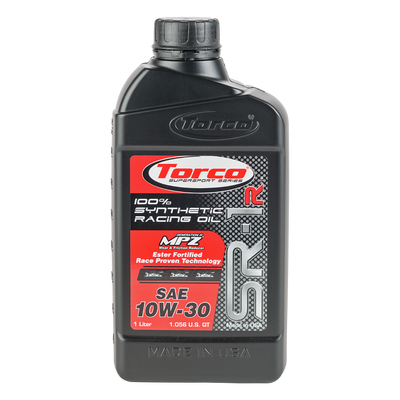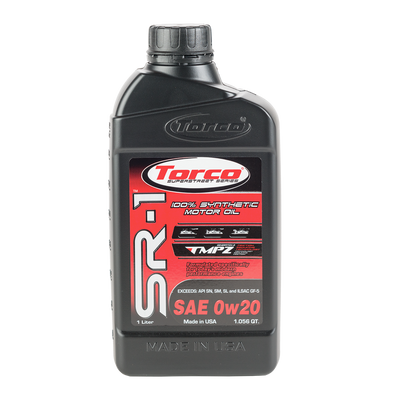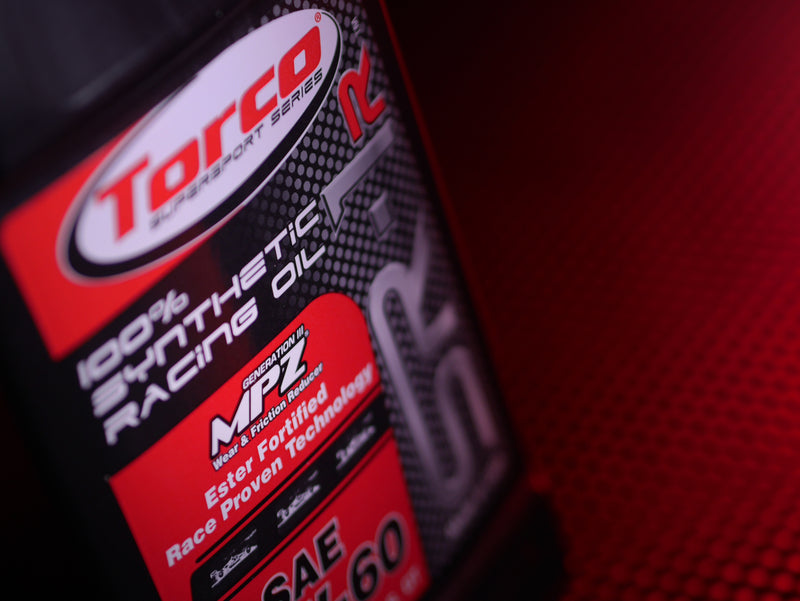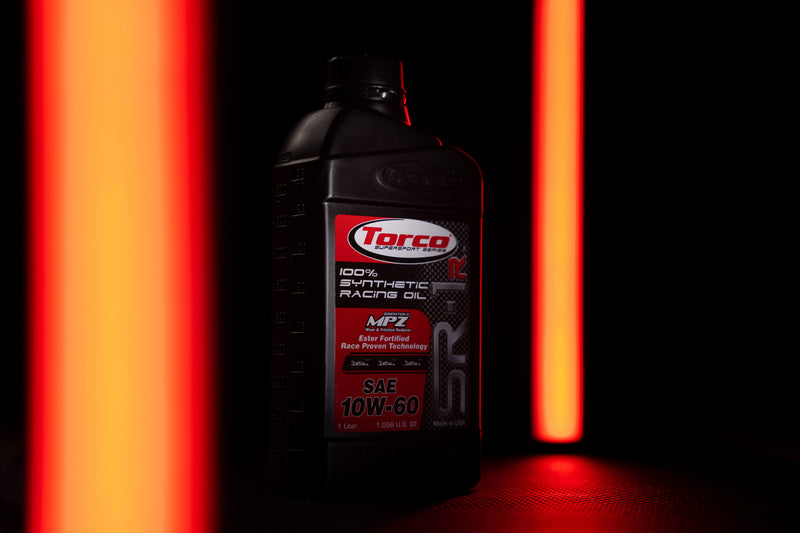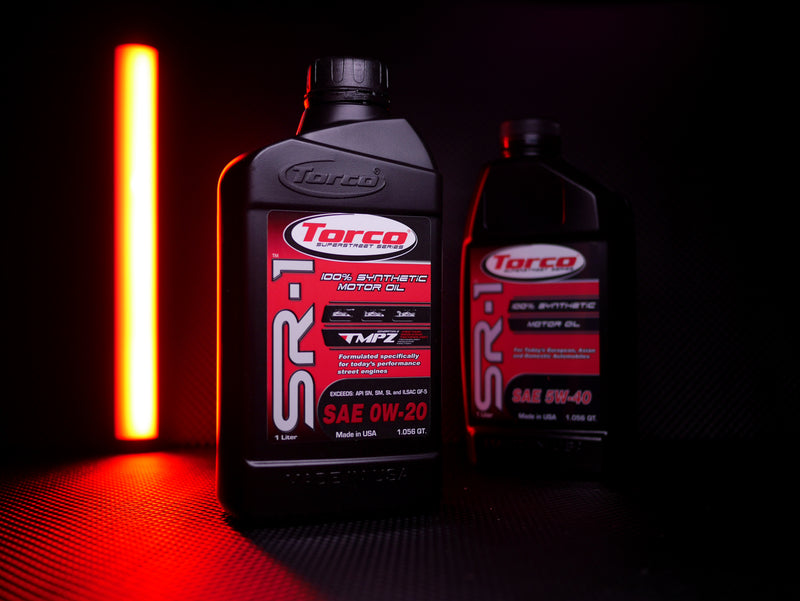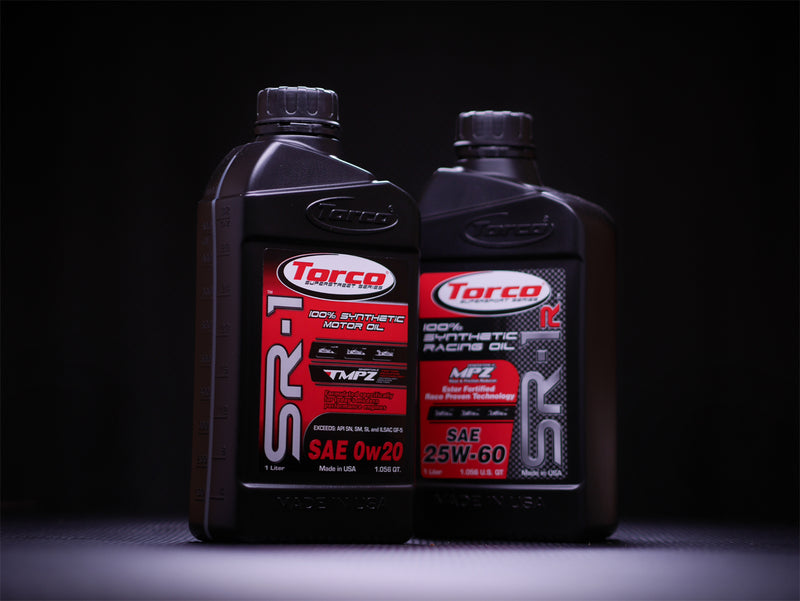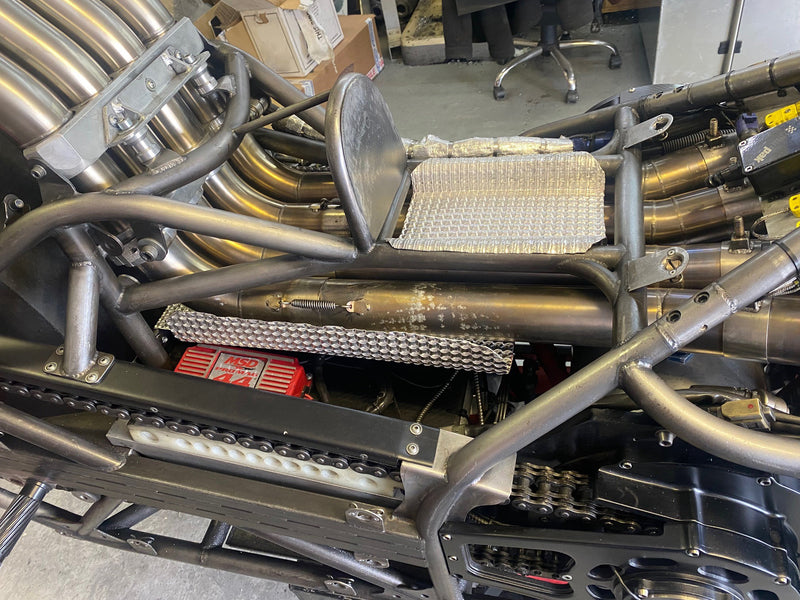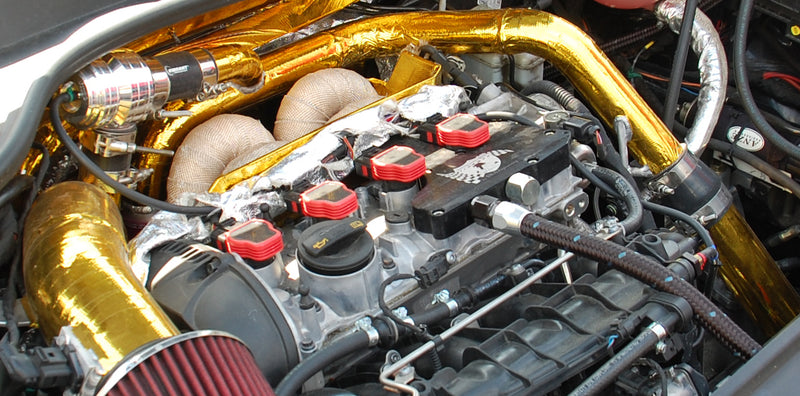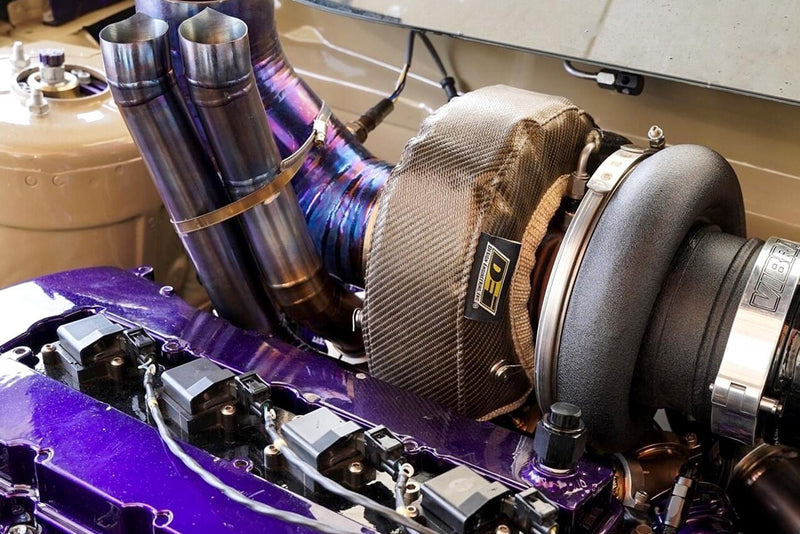Street oil vs racing oil: Understanding the distinctions and performance factors

In this installment of our blog series looking in more details at the Torco engine oils we look at the intricate differences between street oils and racing oils. While they both have their roles, they are designed for very different uses and applications. And wait until you hear about Torco's MPZ chemistry—but we'll save that for a dedicated post. For now, let's open the hood and explore these types of oils in depth.
Base oils: The starting point
The journey begins with the base oil. Think of it like the frame of your car—it's where it all starts. For street oils, conventional or synthetic base oils typically do the trick. They are reliable for everyday driving and meet OEM specifications.
But when we shift to racing oils, it’s a whole different game. Here, we typically use top-notch Group III synthetic base oils and Group IV, V oils like mPAOs (Metallocene Polyalphaolefins), Polyol Esters, and Alkylated Naphthalenes. These base oils are engineered in a lab for exceptional performance in the extreme conditions of a race.
Engine oil viscosity: The perfect balance
The idea of viscosity is crucial both for street and racing oils. Street oils are designed to provide a balance that ensures smooth operation in everyday driving conditions, maintaining good fuel efficiency and engine protection.
Racing oils, however, require a more precise balance. They must flow fast but not too fast, providing exceptional protection for the engine even under the heavy loads and high temperatures typical experienced in a racing application.
Engine oil additives: The performance enhancer
Additives play a significant role in both street and racing oils. For street oils, additives help in maintaining engine cleanliness, minimizing wear, and enhancing fuel economy, among other things.
In racing oils, additives like Zinc dialkyldithiophosphates (ZDDPs) and friction modifiers come into play. These components are like the high-performance parts of a race car, protecting your engine from wear and tear, even when the going gets tough.
Extreme operating conditions: Street vs. race
While street oils are designed to perform reliably under normal driving conditions and a range of temperatures, racing oils need to withstand the severe conditions of a race. High PRMs, high load, high heat, and high pressure—racing oils, with their high-quality base oils and carefully selected additives, are ready for the challenge.
Flow and distribution: Efficiency vs. speed
Finally, we come to the topic of how the oil moves and spreads throughout the engine. In street oils, these properties are designed for efficiency and protection under normal driving conditions. The oil needs to reach all parts of the engine efficiently and provide robust protection against wear.
Racing oils, on the other hand, are meticulously formulated to ensure optimal flow and distribution under racing conditions—fast and smooth, but always with the engine's protection in mind, even under extreme conditions.
And there you have it—the key distinctions and performance factors between street and racing oils. We hope this post has you revved up for our upcoming post in another series, where we'll peel back the layers on Torco's MPZ chemistry. Whether you're an experienced racer or just curious about what keeps your car running smoothly, understanding the differences between these oils is crucial. Remember, the right oil makes all the difference, and we're here to help you pick the perfect one for your needs. So, let's hit the road—or the track!
Stay tuned, and in the meantime, keep those engines protected.
Other articles in this series:
- Series introduction
- What is engine oil: Understanding the purpose and benefits
- Formulating the best engine oils with Torco: A scientific look
- Street vs. racing oils: Unveiling the distinctions and performance factors
- Torco SR-1 Superstreet: High performance engine oil for the street, built with racing DNA
- Torco SR-1R Racing engine oil: Igniting excellence on track
- Bonus Post - Torco's MPZ racing additive: A peek into horsepower and efficiency
